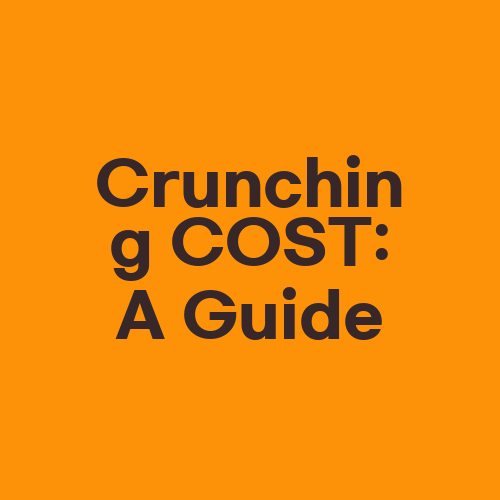Crunching COST: A Guide

Crunching COST: A Guide
What is COST?
COST is an acronym for the “Committee on Science and Technology.” It is a global organization that promotes international cooperation in scientific research and development. COST is funded by the European Union and consists of 38 member countries and 1 cooperating state. COST supports the collaboration of researchers, engineers and other experts across the continent to develop innovative solutions to global challenges. COST’s vision is to improve the quality of life for all citizens by advancing science and technology.
Useful link: http://www.cost.eu/
The History of COST
COST was founded in 1971 to coordinate European research activities in the science and technology fields. Since then, it has evolved into a global organization focused on promoting research excellence and innovative solutions to societal challenges. COST provides a platform for networking, capacity building, and sharing of scientific knowledge across borders and disciplines. As a result, COST has become a leading voice in the international scientific community.
Useful link: https://www.cost.eu/about_cost/history/
Representatives of COST
COST is governed by three main bodies: the COST Committee of Senior Officials (CSO), the COST Association, and the COST Office. The CSO is responsible for overall strategy and policy-making, while the COST Association implements these policies and manages COST’s daily operations. The COST Office, which is based in Brussels, Belgium, provides administrative support to the Association and CSO. Together, these bodies work to ensure that COST remains a dynamic and effective organization.
Useful link: https://www.cost.eu/about_cost/who-we-are/
COST’s Corporate Information
COST is a non-profit organization that receives funding from its member countries as well as the European Union. It operates on an “à la carte” principle, meaning that each COST Action (a network of researchers and experts working together on a specific topic or theme) is funded on a case-by-case basis. COST has an annual budget of around €40 million, and it funds approximately 50 Actions per year. COST is committed to promoting scientific excellence, innovation and research collaboration across disciplines and borders.
Useful link: https://www.cost.eu/about_cost/corporate-information/
Frequently Asked Questions about COST
What kind of research does COST fund?
COST funds research in a wide range of fields, including natural sciences, engineering, social sciences, and humanities. It supports research that is innovative, cross-disciplinary and has the potential to make a real impact on society.
How can I get involved in COST?
If you are a researcher or expert in a field that is relevant to COST, you can get involved by participating in COST Actions. You can also contact your national COST coordinator to find out more about how to get involved.
What are the benefits of participating in a COST Action?
Participating in a COST Action provides opportunities for networking, capacity building, and knowledge exchange with experts in your field from across Europe. It also provides funding for research activities, such as workshops, conferences and exchange visits.
Conclusion
COST is a unique organization that promotes excellence in research collaboration across borders, disciplines, and sectors. It is committed to contributing to the advancement of science and technology for the benefit of society. With its dynamic and innovative approach, COST is a leading voice in the international scientific community.
Useful link: https://www.cost.eu/